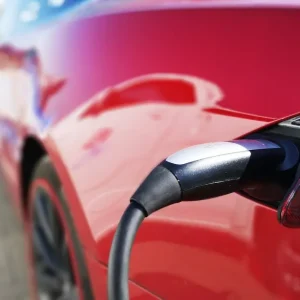ACFO has pledged to fight the government’s recent Budget announcement on company car tax calling it “one-sided” and has urged Chancellor of the Exchequer, Philip Hammond to focus on removing old, polluting diesel vehicles from the UK’s roads.
Simultaneously, ACFO deputy chairman Caroline Sandall suggested during the organisation’s first webinar that fleet decision-makers should look at bringing forward diesel company car replacement cycles as soon as Real Driving Emission 2 (RDE2) models become available to enable drivers to reduce benefit-in-kind tax bills, while employers saved on Class 1A National Insurance contributions payable on benefits-in-kind.
“I’m quite disappointed that the Chancellor singled out van drivers in his Budget Speech as being unaffected whereas thousands and thousands of company car drivers are penalised. Not all company car drivers are perk – many are job-need – and they’ve been penalised and I don’t think that’s fair,” Sandall explained.
The webinar was the first in a series that will continue throughout 2018, enabling ACFO members to obtain up-to-date information without leaving their desks. The Budget webinar was recorded – as all future webinars will be – and is available in the library on the ACFO website for members to access.
In the Budget Statement last week, Philip Hammond announced two specific diesel measures, both due for introduction in April 2018:
- A rise in the existing company car benefit-in-kind tax supplement from 3% to 4%, with effect from 6 April 2018. Approximately 800,000 employees who drive a diesel company car will pay more tax, according to the government. Only cars that meet the RDE2 standard will be exempt from the supplement and the government admits that it was unlikely that “few, if any cars” would meet the RDE2 standard in 2018 to 2019.
- A Vehicle Excise Duty (VED) supplement will apply to new diesel cars first registered from 1 April 2018. The First Year Rate will be calculated as if cars were in the VED band above.
Sandall continued: “The tax rises gloss over the fact that many employees drive a company car because they need the vehicle to do their job. The constant attack on diesel cars ignores the fact that for high mileage drivers they are the most efficient. It will encourage fleets to consider petrol cars, but from a CO2 perspective they are not as efficient as diesel.”
The Chancellor also confirmed that CO2 emission figures for both company car benefit-in-kind tax and VED derived from the new Worldwide Harmonised Light Vehicle Test Procedure (WLTP) would be used from April 2020. Industry experts have suggested that CO2 figures on a car-by-car basis could increase by about 20% with introduction of WLTP data, the government has yet to announce company car benefit-in-kind tax rates beyond 2020/21.
“Businesses want stability and clarity and for fleets that applies to vehicle-related tax. It is an on-going challenge and ACFO will continue to press the government to clarify thresholds so the tax position of cars over a full replacement cycle is known to enable long-term planning by fleet operators and drivers,” Sandall said.
“ACFO will continue to press the government to look at the overall tax picture so that newer and cleaner vehicles continue to be operated by fleets, which then filter through to the used car market.”





